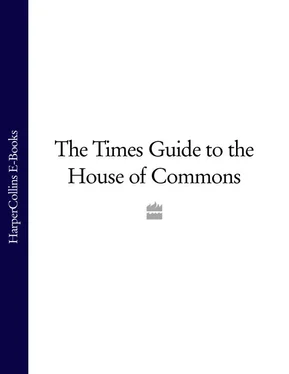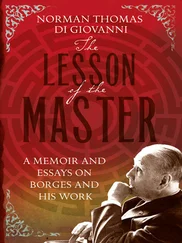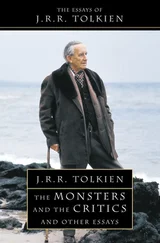It was the tangled allegations of financial impropriety against his son Ian Jr that provided the excuse to get rid of him (the Stormont Ombudsman later cleared him). Mr Paisley tersely announced that he was retiring, to be replaced as DUP leader and First Minister by Peter Robinson. Mr McGuinness learnt of it from the radio news.
Mr Robinson promised a new era of “business-like” dealings with Sinn Féin: code for less grinning, which was going down badly with the grassroots. The DUP’s foot-dragging over the transfer of policing and justice powers from Westminster to Stormont began to unnerve Sinn Féin, which withdrew its cooperation, effectively rendering the power-sharing Executive mute for many months. In local parlance, the Chuckle Brothers had become the Brothers Grim.
Northern Ireland slid in slow motion towards a new crisis. Sinn Féin privately briefed that its patience was not eternal and that if policing and justice were not devolved by Christmas 2009 they would bring down the institutions whose construction had taken so long to complete.
Then came the most unpredictable of crises for Northern Ireland’s leaders. Gerry Adams was accused of covering up for decades the alleged sexual abuse by his brother Liam of Liam’s daughter. Mr Robinson was revealed as a cuckold, his wife, Iris, MP for Strangford, having had an affair with a teenager. There was more. Iris had raised £50,000 from property developer friends to set her young lover up in business, pocketing a “commission” herself from the cash. Mr Robinson was accused in a BBC investigative documentary of having breached his office’s code of conduct by not having made the authorities aware, a charge that he strongly denied.
The personal and political crises intertwined as Sinn Féin increased the pressure. Gordon Brown, whose interest in Northern Ireland had been minimal until now, was forced to fly with Brian Cowen, his Irish counterpart, to Belfast to hold emergency proximity talks. These failed and after three days the Prime Minister abandoned Hillsborough Castle, leaving Shaun Woodward, his Northern Ireland Secretary, to oversee two weeks of marathon negotiations, during which Mr Robinson temporarily stood down as First Minister.
Eventually the deal was done and sealed by the British and Irish leaders, who returned to unveil a firm date for the transfer of policing and justice powers, a hugely symbolic act for Sinn Fein since it could henceforth argue that the English were no longer running the show.
The extraordinary survival of Mr Robinson and Mr Adams as leaders of their respective parties was much commented upon, with most agreeing that neither could or would have remained in any other part of the United Kingdom or the Republic of Ireland. Yet there was one surprise in the general election of 2010. Mr Robinson’s party saw off the challenge from a revived Ulster Unionist Party, now in alliance with the Conservatives, but also the Traditional Unionist Voice power-sharing rejectionists.
Establishing themselves beyond question as the voice of Unionism, talk began once more about a united Unionist party to challenge Sinn Fein’s onward march towards becoming Northern Ireland’s largest party. But Mr Robinson lost his East Belfast seat, which he had held for 31 years, to Naomi Long of the cross-community Alliance party, which designates itself neither Unionist nor nationalist. Across the city in West Belfast Mr Adams increased his share of the vote to 71 per cent.
As the parliamentary term drew to a close it seemed as if the self-denial about the threat of a fresh cycle of terrorism from a new generation of Irish Republican extremists was finally over. The Real IRA, a splinter of the Provisionals, bombed the Army’s Palace Barracks outside Belfast where MI5 has its headquarters.
One phase of the Troubles had drawn to a close, but another was threatening to commence.
Welsh coalition complications
Greg Hurst
Editor of the Guide
Britain’s first postwar coalition government involving the Conservatives and Liberal Democrats came within a whisker of being forged in Wales, three years before that agreed in Westminster. The two parties struck a deal to become junior partners in a coalition led by Plaid Cymru after the elections to the Welsh Assembly in 2007, only to see it unravel at the eleventh hour.
The collapse of Cardiff’s “rainbow” coalition propelled Plaid into the arms of Labour, the dominant party of Wales, which remained in office to lead a red-green Government that was anathema to many supporters of both.
The biggest beneficiary was Rhodri Morgan, returning as First Minister to secure his place as the man who, more than anyone else, shaped the direction and tone of Welsh devolution. Donnish, quirky, consensual in approach but statist by instinct, Mr Morgan’s achievement was to reach out well beyond Labour’s strongholds in industrial South Wales to foster a sense of national purpose, often while his party did not. To do so, he had to lead, cajole and endure a Welsh Labour Party whose tribal instincts were directly contrary to the principles of pluralism on which Welsh devolution was built.
Unlike Donald Dewar, who led the parallel devolved Executive in Scotland from its creation to earn the mantle of father of the nation, Mr Morgan lost out in Labour’s first election to lead the Welsh Assembly in 1999 after some heavy-handed intervention from Tony Blair in support of his chosen candidate, Alun Michael. Yet this opening battle was subsequently of enormous help to Mr Morgan because it illustrated his willingness to stand up to his party in London and do things his way. That became his approach as First Minister.
From the outset Labour’s Assembly group refused to countenance coalition, despite being short of a majority, leading to the fall of Mr Michael and clearing the way for Mr Morgan to replace him, first in coalition with the Liberal Democrats from 2000-03 and subsequently, when Labour won 30 of the 60 Assembly seats in 2003, ruling alone.
Mr Morgan rejected new Labour’s reforms to public services and sought to tackle inequality by extending the State: free bus passes for pensioners, free prescriptions for all, free breakfasts for primary school pupils.
The Assembly itself underwent a profound change in 2006 as the Government of Wales Act gave it law-making powers, known as “assembly measures”, on areas of devolved policy, subject to the agreement of the Welsh Secretary and approval of both Houses of Parliament. It also separated the powers of the executive government from the Assembly.
Mr Morgan announced in 2005 that he would seek re-election to the Assembly in 2007 but, if successful, stand down some time in 2009, mid-way through the Assembly’s term. The Assembly elections in 2007 coincided with a fall in Labour’s popularity across Britain. Although the party in Wales tried to distance itself from Mr Blair, discouraging him from campaign visits, Labour lost four seats in the Assembly, leaving it well short of control.
In the ensuing vacuum, the opposition parties began an extraordinary attempt to oust Labour. Plaid, with a more professional campaign and fresh emblem of a yellow Welsh poppy in place of its traditional green, gained three seats to take its tally to 15. It also diluted its wish for Welsh independence to become a “long-term vision”, making it a more palatable partner, opting instead for community campaigns against closing hospitals and sub-post offices and spending pledges such as a free laptop for every child at school,
Plaid’s leader, Ieuan Wyn Jones, opened talks with the Welsh Conservatives, who had also nurtured a more distinctly Welsh identity, urging national status for the Welsh language and a bank holiday on St David’s Day, and with the Liberal Democrats. The three had met regularly, and constuctively, to discuss oposition tactics; they now planned for government.
Читать дальше












